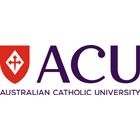Master of Dietetic Practice
Master of Dietetic Practice
The Master of Dietetic Practice is a 2-year full-time program. Dietetic Practice is the application of the science of food and nutrition across a range of domains to improve the health and wellbeing of individuals, communities, and populations. The course combines theory and practice placement across dietetic practice areas including…
Categories
COURSE DESCRIPTION
The Master of Dietetic Practice is a 2-year full-time program. Dietetic Practice is the application of the science of food and nutrition across a range of domains to improve the health and wellbeing of individuals, communities, and populations. The course combines theory and practice placement across dietetic practice areas including food and nutrition counselling with individuals, food and nutrition education and capacity building with groups, public health nutrition, food production and provision to individuals, communities and populations, entrepreneurial dietetic practice and management, and research.
Commonwealth Supported Places are available for this course. See the Courses costs section below, under Fees.
Careers
Employment for graduates will be across a range of sectors and depend in part on the interests of the graduate.
Examples of the work and settings the course prepares graduates for includes:
Acute health services e.g. hospitals
Community health services
Aged care facilities
Private practice/consulting
Food and nutrition communication/media
Food production and provision
National and international health agencies
State and federal government health departments
Public health nutrition
Food industry
Food science and technology
Food safety and regulation
Food research and product development
Education sector
Further study
Graduates of the Master of Dietetic Practice are likely to commence practice however may progress to additional postgraduate study. A Master of Public Health or Master of Business Administration are typical, as is further studies in Education.
REQUIREMENTS
Applicants with higher education study
An applicant must also comply with the Admission to Coursework Programs Policy.
A: Pathway 1 (140cp): a. ACU’s Bachelor of Nutrition Science which includes completion of the ACU units NUTR404 Advanced Culinary Nutrition Science and NUTR405 Foods for Special Diets, AND one of the following: a grade point average (GPA) of at least 5.0 on the ACU 7 point scale; or evidence of relevant industry experience for at least one year post-Bachelor graduation or
B: Pathway 2 (150cp): b. ACU’s Bachelor of Nutrition Science which includes completion of the ACU unit NUTR404 Advanced Culinary Nutrition Science AND one of the following: a grade point average (GPA) of at least 5.0 on the ACU 7 point scale; or evidence of relevant industry experience for at least one year post-Bachelor graduation or
C: Pathway 3 (160cp) c. A Bachelor degree in Nutrition (or equivalent) which includes the equivalent of one full-time half year of study (4 study units or equivalent) in: Chemistry followed by Biochemistry; and Human Biology and Human Physiology; and
Food and Human Nutrition Science, which must include foundation nutrition, nutrition through the lifespan, food science, and the role of diet in the development and management of chronic disease;
a grade point average (GPA) of at least 5.0 on the ACU 7 point scale; or
evidence of relevant industry experience for at least one year post-Bachelor graduation; or
completion of ACU’s Graduate Certificate in Culinary Nutrition Science with a grade point average (GPA) of at least 5.0 on the ACU 7 point scale.
- IELTS – Overall score 7.0 with an Individual score of 7.0 in all tests
- PTE – 65
- TOEFL – 94 (Writing – 27, Reading – 24, Speaking – 23, Listening – 24)
- ACU English Language Test – A
- Cambridge Advanced English (CAE) – 185
EDUCATIONAL INSTITUTION
Australian Catholic University (ACU) is an Australian education provider that is ranked in the top 2% of universities worldwide and the top 40 of Generation Y universities. Study options are offered in the areas of arts and humanities; business and IT; education; law; nursing and health sciences; philosophy and theology; psychology; sport and biological science. A degree at ACU involves much more than classes and study. Throughout the degree, students will hear and learn from industry leaders who bring their expertise to ACU to inspire a new generation of leaders. ACU has campuses across Brisbane, Adelaide, Ballarat, Blacktown, Canberra, Melbourne, North Sydney, Rome, and Strathfield.

